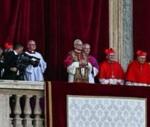You are here
‘Before and after’ — the Turkey coup
Jul 24,2016 - Last updated at Jul 24,2016
In Turkey, many signs have indicated the possibility of a military coup since 2013. Several reports have referred to the level of discontent within the military establishment.
According to these reports, President Recep Tayyip Erdogan’s policies were the core source for numerous internal and external crises; such crises have also appeared within the ranks of the Justice and Development Party (AKP) due to political disputes between Erdogan and some of his former allies.
Turkish policies have also been subject to the doubts of other countries, particularly when it comes to the efficiency of the Turkish role in fighting terrorism, i.e. its role in Syria and controlling the waves of refugees heading to Europe.
On the night of July 15 and 16, the first steps of the military coup showed that the operation was well organised, and the putsch was nearly successful.
Taking over the official broadcaster, announcing the fall of the AKP government, deploying tanks on the main bridges in Istanbul and Ankara, arresting top officers, controlling the military headquarters and launching coordinated attacks on police and security headquarters — all these actions suggested a well prepared plan.
However, all changed in few hours, when Erdogan had the chance to talk on CNN Turk via the Face Time mobile application — which means that he could not talk to any Turkish channel — asking people to take to the streets and defy the military-imposed curfew.
This call apparently was the game changer, as the coup was relying on the curfew and the superiority of F16 and Apache warplanes.
In all cases, the coup seems like an earthquake that will have its aftershocks inside Turkey still affecting the country’s security and economy.
At the regional level, Erdogan will find himself preoccupied dealing with internal issues, which would limit his capacity to be engaged in regional politics.
Before the coup attempt, the security situation in Turkey was already unstable, with several attacks hitting Turkish cities, which means that challenges coming from Ankara’s anti-Kurdish policies and the war against terrorism will continue.
The post-coup strategy is also focused on the elimination of wide groups from within the Turkish state. This is expected to continue for the foreseeable future, and could negatively affect the country internally.
Another major risk lies in the possibility that Erdogan’s policies could lead to diluting secularism in Turkey, one of the last few remaining centres of secularism in the Middle East.
This will encourage new attempts to launch Islamist projects around the region.













